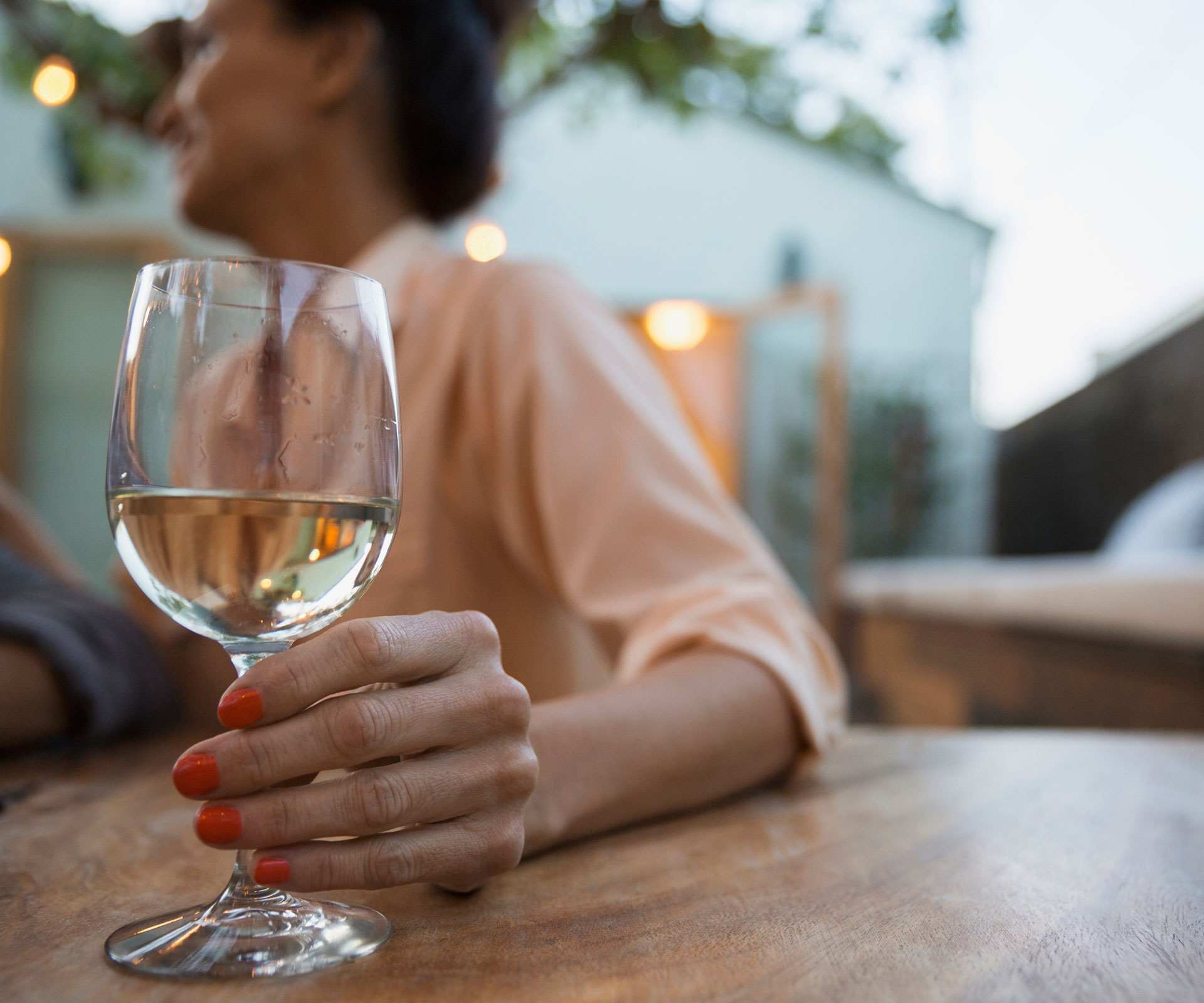More than 500,000 middle-aged Australian women drink far too much, far too often. So what happened when two “high risk” drinkers went teetotal?
At 46, Jules Vandermaat was a self-confessed, “party girl”. She didn’t have a problem with alcohol, and she certainly wasn’t an alcoholic. And yet, booze had become a prominent player in her life. “Drinking was part of my identity,” she recalls.
Despite her active and healthy lifestyle, Vandermaat, a mother of three, was a regular binge drinker, easily finishing a bottle of wine on a weekday evening.
“Wine o’clock was coming earlier and earlier. I would often drink a bottle of wine while cooking and finish it while I ate dinner,” she says.
While most healthy drinking guidelines suggest two to three alcohol-free days a week, Vandermaat says that going without a drink was a struggle. “The only days that I didn’t mind going without [alcohol] was when I was hangover from the night before,” she admits.
Although Vandermaat’s drinking habits may appear ‘bad’, they are not unusual. In fact, a recent study from the University of Western Sydney found that more than 500,000 middle-aged women in Australia are engaging in ‘high-risk’ drinking.
Researchers found that large numbers of women aged 35 to 59 were drinking alcohol to ease the pressures of juggling children, work responsibilities and demanding partners.
For Vandermaaat, alcohol became a coping mechanism for the stress and strain of everyday life. “I’d have a stressful day at work and come home and start on the wine. If I felt sad – I’d drink, if I felt angry – I’d drink,” she explains.
But all of that was about to change. In March this year Vandermaat started to acknowledge what she had known deep down for a long time; alcohol wasn’t helping her; in fact, it was making everything worse.
Having seen the writing on the wall, she decided to give up booze indefinitely. But despite her resolve, Vandermaat knew that she would need some encouragement, so she started looking for support groups online. That’s when she discovered not-for-profit group Hello Sunday Morning (HSM).
HSM is a movement towards a better drinking culture. They encourage members to sign up for alcohol abstinence challenges to help promote healthier alcohol habits. For Vandermaat, HSM was a place she could go (on-line) to talk about the challenges she was facing without alcohol.
Vandermaat has been off alcohol for 38 weeks now, and feels like a new woman. “I feel calmer, I feel happier, and I feel proud of myself. I’m not sabotaging myself anymore,” she says.
Maria Augustus-Dunn, 54, is well known in the HSM community. She hasn’t had a drink since the first of January 2013 and says that she is off alcohol for good.
Augustus-Dunn and her husband retired in 2011 and became permanent travellers (or “grey nomads”). Naturally, this lifestyle change had big repercussions, particularly when it came to alcohol.
“Every day was like a Saturday. And what do you do on a Saturday? You have a few drinks,” says Augustus-Dunn.
Augustus-Dunn says that in a “light bulb moment”, she realised that if she carried on drinking at the same pace she would become an alcoholic. On top of this, Dunn acknowledged that if she didn’t change, she would continue to gain weight and that her health would suffer.
“I was staring down the barrel of becoming an alcoholic. After a lifetime of excessive drinking, I needed to take control. So I signed up for a 12 month HSM [alcohol abstinence] challenge,” she says.
While her initial plan was to have a year off of alcohol, Augustus-Dunn soon realised that moderate drinking wasn’t an option for her. “I know that I am an all or nothing person. So it’s either ten drinks or zero, so now I choose zero,” she says.

Maria at the height of her drinking, and after she quit.
Since giving up alcohol, Augustus-Dunn has lost 30kg and gone from a size 22 to a 16. She now exercises six mornings a week; walking five kilometres and then working on core strength exercises such as squats and lunges.
“In the beginning I would be lucky to do ten minutes of continuous walking,” she recalls.
There have been other benefits too: “Everything has improved, my skin, my hair, my sense of wellbeing. I’ve even been able to stop taking HRT because I don’t get hot flushes anymore,” says Augustus-Dunn.
Having been a big social drinker, Augustus-Dunn decided to be honest with her friends and family when she embarked on her new alcohol free lifestyle. “I was very public about it – I put it on Facebook and I asked for everyone’s support. Some friends were amazed – they didn’t think I would last a week, and to be honest, neither did I,” she says.
These days Augustus-Dunn is as sociable as ever, but rather than pouring a glass of wine, she takes a cup of tea to campground ‘sun downers’. “I still go to pubs and clubs and RSLs, I never shy away from sitting at a bar and talking to people,” she says.
When Augustus-Dunn gave up alcohol she knew that there would be times she would feel like having a drink. With this in mind she armed herself with strategies to help her resist temptation.
“I talk to my husband about how I’m feeling, I’ll write in my diary, I’ll blog on HSM. If I’m still tempted I will open a bottle of non-alcoholic wine and use my very best wine glass. It’s worked every single time,” she says.
Like Vandermaat and hundreds of other HSM members around Australia, Augustus-Dunn says that there is no room in her life for alcohol.
“I’m still going out, I’m still having fun – I just do it all without booze,” says Augustus-Dunn. “Life is just better without alcohol.”


